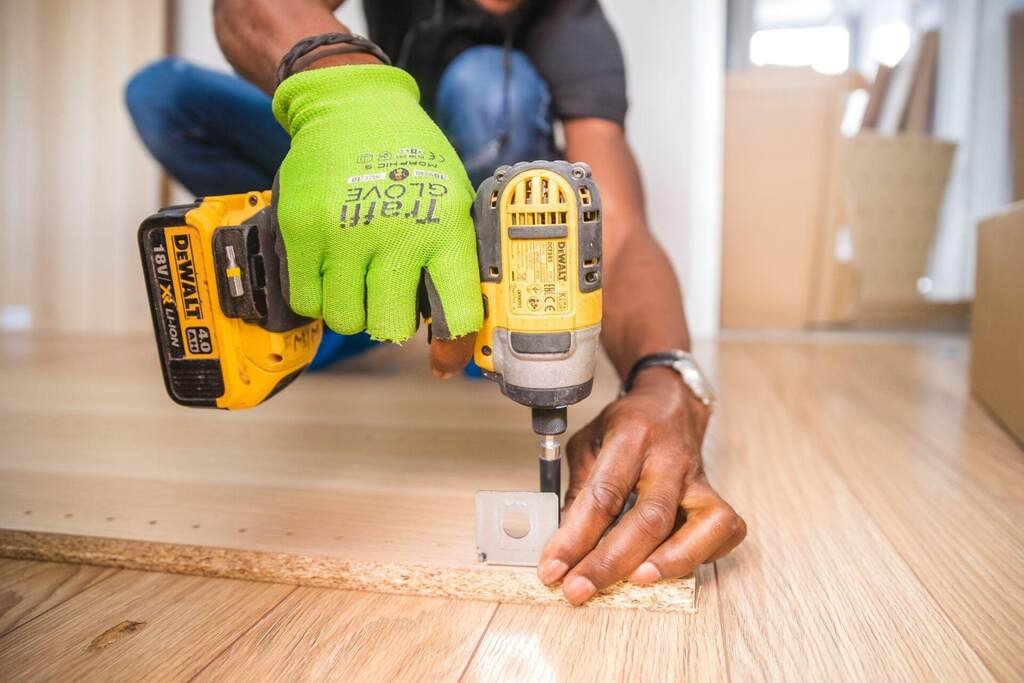Buying a house without problems disclosed is frustrating. You feel betrayed and stuck with the lousy purchase. Even worse is if you paid a substantial amount of money to buy it. However, let’s face it, the current housing market is not jolly.
Sellers must disclose certain things about the property when selling a house. Therefore, you have options if you find problems that were not disclosed. In some cases, you might even have grounds for legal action. But you will need to provide proof. Here are all the things to consider if you are sold a house without disclosed problems.
4 Things To Consider If You Find Problems After Buying a House
If you bought a property and keep finding undisclosed issues, the law is in your favor. However, before you make a legal claim, there are some essential things you need to consider. First of all, a legal battle is always the more complicated option.
You need to be sure you have a legal claim. Otherwise, it can be unnecessary and a huge hassle. If you discover problems after purchasing a house the seller did not disclose, here are the important things to consider:
Document the Problems
The first thing you should do is document it properly. That includes taking pictures and writing issues down. It will give you a detailed list of the actual problems you find. And more importantly, you will have proof of the defects.
You can also hire a professional contractor to assess the damage’s risk and extent. Talking to a professional is especially important because you might need to vacant the house if the risk is too severe.
You can also talk to a lawyer if the risks are too severe. More on this a bit later. Regardless of what you do, documentation is important.
Some Problems Might Still be Covered Under Warranty
There is a chance that some problems are still covered under warranty. So, you are not completely out of luck if you find defects after moving into a new home.
Talk to the agent or the house’s seller. Ask whether the home is under warranty. Warranties are great for sellers since they can increase the house’s value, which is why many sellers opt for insurance.
If the seller has insurance, you can get the problems and defects fixed without jumping through hoops.
Evaluate the Defects
Consider evaluating the defects by an expert real estate agent. Agents like Lydia Chelle, an expert in Scottsdale real estate, can examine the issues and advise on what to do next.
They will be able to tell you how much it might cost to get the problem fixed. And more importantly, whether you have a legal claim or not. Not all problems you find with your home have a viable legal claim, though.
For example, defects that are not apparent do not typically have a claim. Defects like faulty electrical wiring, which the seller did not know about, are not grounds for legal action.
Hire a Lawyer – You Might Have a Legal Claim
In many cases, you might still have a legal claim, according to Scottsdale real estate law. Contact a real-estate lawyer to see what legal action you can take.
A benefit of working with a local lawyer is that they will be familiar with the laws in your area. Additionally, you will get expert advice on what to do from here.
But consider that it might not even be worth it to take it to court. You must prove that the seller was aware of the defects before selling the house. And that they intentionally withheld that information.
Ensure Who Has the Burden of Proof
Another thing you need to consider is who has the burden of proof. This ties in with what we mentioned earlier – always document the problems. The burden of proof after buying a house is on you.
This means you need to provide sufficient evidence that the seller knew about these problems. But they intentionally did not tell you about them. You can also show proof hiding defects.
It can include things like painting over cracks in the driveway. Or painting over damaged walls without repairing the underlying problem. Regardless of what you find, take pictures and write it down. It will give you ammunition in the court.
Check for Material Defects
Material defects are problems with your house that can pose a risk to its occupants. This is a relatively major problem. Material defects lower the value of your home. And it makes the house risky to live in as well.
Therefore, if you have bought a home with material defects, you might have paid more than it is worth. However, remember that general defects and material defects are very different things.
Many people misreport material defects. But really, they are just defects. While no defects are something to feel good about, misreporting material defects create an unnecessary hassle and liability.
Bought a House As-is? What Does It Mean for You?
You are not out of luck if you bought a house as-is and found defects. Your seller still has legal liabilities. Buying as-is means that the seller will hand you the house in its current condition.
As-is home sales confuse both the buyer and seller. Some buyers think that if they uncover problems, they are responsible for fixing them. Fortunately, this is not the case.
If your seller intentionally did not disclose major issues with the house, the seller is liable to pay damages. Sellers need to disclose major problems like material defects, for example.
You, as the buyer, can also sue the seller for damages. You will most likely make a misrepresentation case. Most buyers either seek compensation for the repair costs or sale cancellation.
Who is Responsible for Home Repairs After Purchase?
You, as the buyer, are also responsible for finding out problems with the house. But the seller or home inspector might also be liable in certain situations.
When is the Home Inspector Liable?
Sometimes the seller and the buyer might not be liable at all. Rather it could be the home inspector. Home inspectors are hired to investigate and find out existing problems with the house.
If they miss finding problems others might have, the home inspector can be liable. You may hold them liable for a breach of contract or negligence. But read the home inspection report carefully to ensure you have not missed anything.
When is the Seller Responsible?
The seller is responsible if you can prove that they had malicious intent. Moreover, if they knowingly did not disclose significant problems with the house. The key term here is prove.
For things like a leaking roof or material damage, which the seller did not tell you about, it is the seller’s responsibility to repair it. The seller is also responsible if they intentionally covered up damaged areas.
When Are You Responsible?
After buying a home, it is yours. And generally, you are responsible for all day-to-day problems and defects. Things happen. And sometimes, things in your home might break. All these will be your problems to fix.
Common inconveniences, such as the water heater breaking, are not the seller’s liability. But as we said, if you can prove that the seller intentionally did not disclose major problems, you can take legal action.
However, you need to be sure there is a legal claim. Suing your seller without proper legal grounds is more of a hassle.
Other Options to Consider After Discovering Problems With Your House
There are cheaper solutions than suing your seller or agent. Consider contacting your insurance company. Your homeowner’s insurance policy will cover many issues.
Your insurance can usually cover problems such as burst pipes and similar problems. Some issues can be covered by your homeowner’s insurance and your home’s warranty.
Besides, if you can cover the issues cheaper, you will have more time and money for home improvements.
What Sellers Must Disclose Before Selling You a House?
Sellers need to disclose certain information about the home they are selling. If you bought a home, the following information should have already been disclosed to you:
- Material defects
- Any information that will impact the home’s value
- Leaky roof
- Natural hazard conditions
- Electrical issues
- Structural problems
- Water damage
- Any recent deaths
- Problems with the foundation
- Cracks
- Zoning issues
- Issues that might perpetual
If the seller fixes material problems, they must still legally disclose it to you. Otherwise, you might have a legal claim against the seller. Different states will have different laws regarding disclosures. Therefore, looking into local state laws about disclosure liability is always best.
What Sellers Are Not Required to Disclose?
There is also some information the seller does not need to legally disclose. You should also know these to avoid suing the seller when you have no legal claim:
- Any disease that is not transmitted by occupancy, like HIV or AIDS
- If there is a sex offender in the area
Wrapping Up
You have many options if you believe you were sold a home without proper disclosure. However, you need to think of your next step carefully.
The seller cannot always be held liable. Always do your due diligence. Make sure you properly document the problems. You can also talk to a lawyer if you need to.
Recommended Posts:













